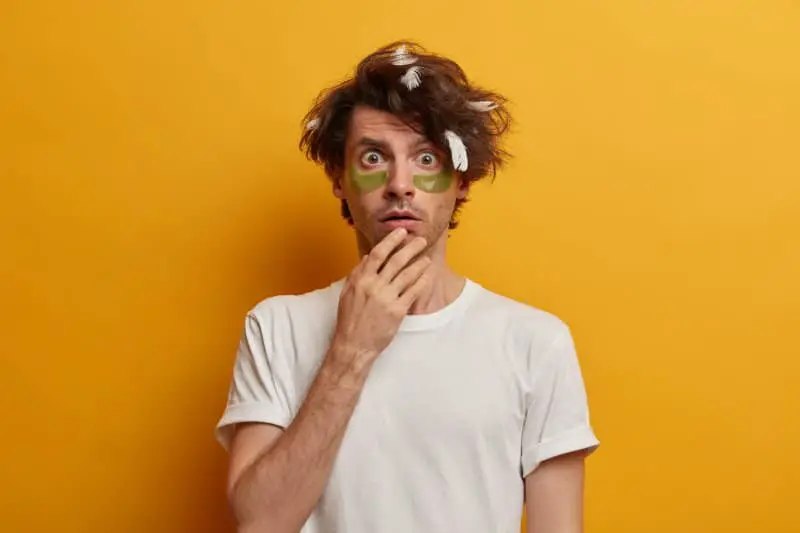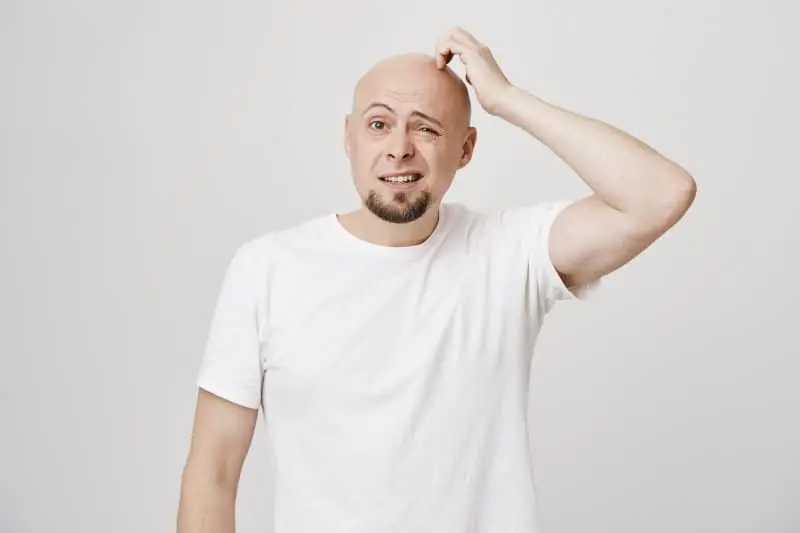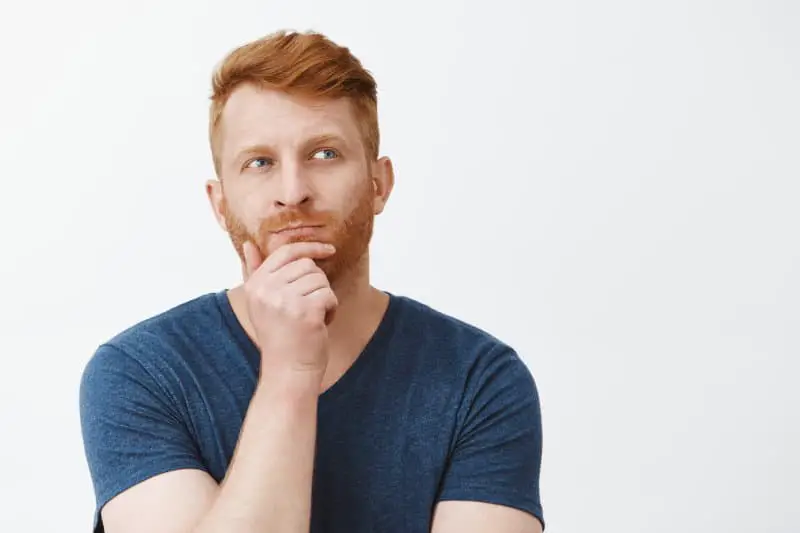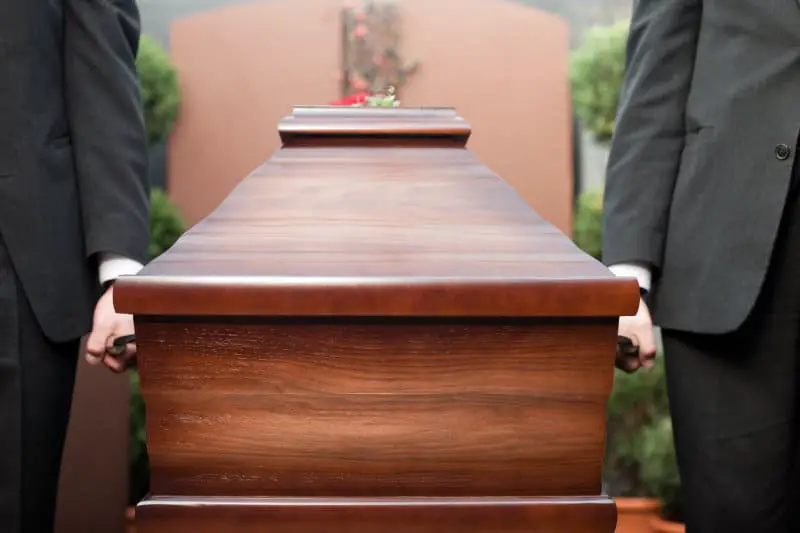Ever heard those myths that beards or even fingernails tend to seem longer after someone dies? Even though it’s hard to grasp that concept, a lot of people swear that they’ve seen it happen, enough to the point that we can’t ignore the question: Do beards grow after death?
Beards don’t grow after death. When the heart stops, there’s no oxygen pumped through the body. As a result, no energy reaches the cells responsible for beard hair or nail growth. However, facial hair might appear longer because the skin around it retracts due to drying up.
Now that you know the biological reason behind this curious phenomenon, why don’t we dive a little deeper into this topic and answer some related questions?
Why Do Beards Appear As They’ve Grown on a Man’s Face After Death?
As we’ve previously mentioned, when people pass away, the heart no longer works. As a result, the blood no longer circulates in the body, carrying with it oxygen to feed hair and skin cells energy to keep working.

Of course, without glucose to help the hair follicles produce more hair, the actual growth of the stubble isn’t possible at this stage.
Now, the more time passes since that person’s death, the drier and drier the skin around the chin and face becomes. So, the skin starts to retract around each hair follicle, making stubble look as if it has grown overnight.
For that reason, many funeral directors will make sure to moisturize the face and hands to reduce the chances of this happening.
A lot of people will wonder if beard hair will shrink, too, as the body dehydrates, but that won’t be possible. Hair and nails don’t include water, so they’ll stay the same while the skin pulls back around them.
Plus, even when a person’s alive, their beard hair is already dead, the only living part of it is the hair follicles. Therefore, no actual change happens to beard hair itself when someone passes away.
Can Deceased People Lose Beard Hair by the Time of Their Funeral?
Technically speaking, a deceased man could end up with a bald head and no facial hair by the time of his funeral. That’s because, if the skin becomes too dry around the hair, the beard will eventually become loose and fall away. Yet, that’s a rare occurrence.
The reason why it’s highly unlikely for someone’s hair or beard to fall out completely before their funeral is that funeral directors intervene. They’ll work to ensure the skin doesn’t reach this phase of drying out by using moisturizing creams on the face and head.
Do Hair and Skin Cells Take a While to Die After a Person Passes Away?

Yes. You must’ve heard that, after the heart stops, the rest of the organs take some time before they completely stop working. For instance, nerve cells are the quickest to lose their activity, taking only seven minutes to die.
However, hair and skin cells tend to take longer to die, the entire process can last for 12 hours. Pretty strange, right?
Still, that begs an important question. Does this mean that hair and nail cells grow just the tiniest bit during that 12-hour timeframe? You’d be surprised that the answer is also yes!
How Long Can a Deceased Person’s Beard Hair Get Until It Stops Growing?
Of course, there’s no accuracy when it comes to those calculations, but we can always speak on average. For most people, the average hair growth per day is at a 0.5-millimeter rate.
With old age, and especially after death, that rate slows down to a great degree. Therefore, it’s safe to assume that a single beard hair could grow only three micrometers in length after someone passes away.
Three micrometers is, of course, microscopic, so this little growth won’t be seen with the bare human eye. In other words, this is not what people notice when they say that beards appear longer on a deceased man’s face.
To give you the full picture, keep in mind that one beard hair is 100 micrometers in thickness. So, a three-micrometer difference in length is impossible to take not of!
How Long Does It Take for Hair to Decompose?
Unlike the rest of the human body, hair remains intact for a long period of time after a person passes away.
Scientifically speaking, the whole hair decomposition process could take a year or two. It might last sometimes longer depending on the environment and natural elements in the soil.
More interestingly, many Egyptian mummies still have their hair locks until this day for everyone to see. But that could be due to the special way that these bodies were reserved thousands of years ago.
The reason why hair normally takes very long to decompose is that it’s made with keratin. This makes it difficult for the hair to break down to its base components. These components include nitrogen, sulfur, and, of course, carbon.
So, because it has loads and loads of keratin, which is a structural protein that increases the hair’s longevity, a lot of time needs to pass for the hair to decompose. During that time, many factors affect the hair to achieve that ultimate goal.
For example, exposure to moisture and high temperatures can speed up the decomposition process. If the hair remains in cold and dry weather, it could stay intact for more than two years!
Does Hair Change Color After Death?

Yes. Bodies that have been buried for a long time tend to rock rust-colored or deep red hair. You might observe this if you look at mummies from different time periods at museums.
The reason behind this is that hair contains eumelanin and pheomelanin. The first is responsible for giving your hair its darkness, while the amount of pheomelanin in hair refers to how much red there is in its color.
Eumelanin is less chemically stable than pheomelanin, so it tends to break down faster after death through oxidation. However, we can’t say the same for pheomelanin, which endures even the most extreme of weather conditions.
As a result, someone’s hair could turn red or orange a long while after they die, even if their hair was originally dark brown or black. You learn something new every day, ha?
To Wrap It Up
Growing a healthy, shiny beard sure sounds like a dream come true. But, along the journey, your mind can be peppered with all sorts of weird questions about facial hair. “Do beards grow after death?” can be one of them!
Now that you’ve read our article, you know that beards don’t grow after someone is gone. It’s just that the skin surrounding it dries up and shrinks, making it seem longer.
Speaking of long beards, you might’ve considered using steroids to boost hair growth. But will that actually work? Time to find out here!

